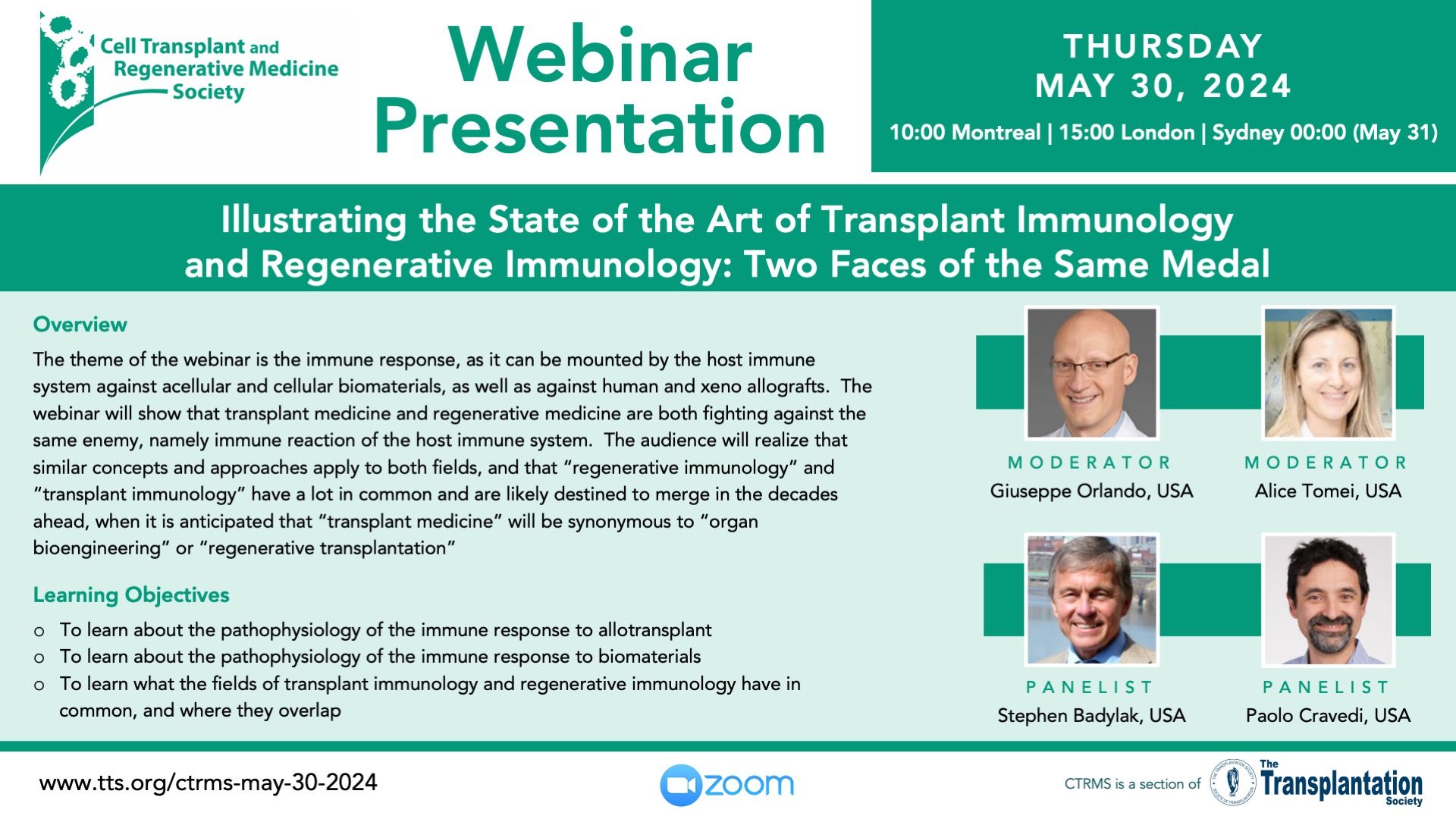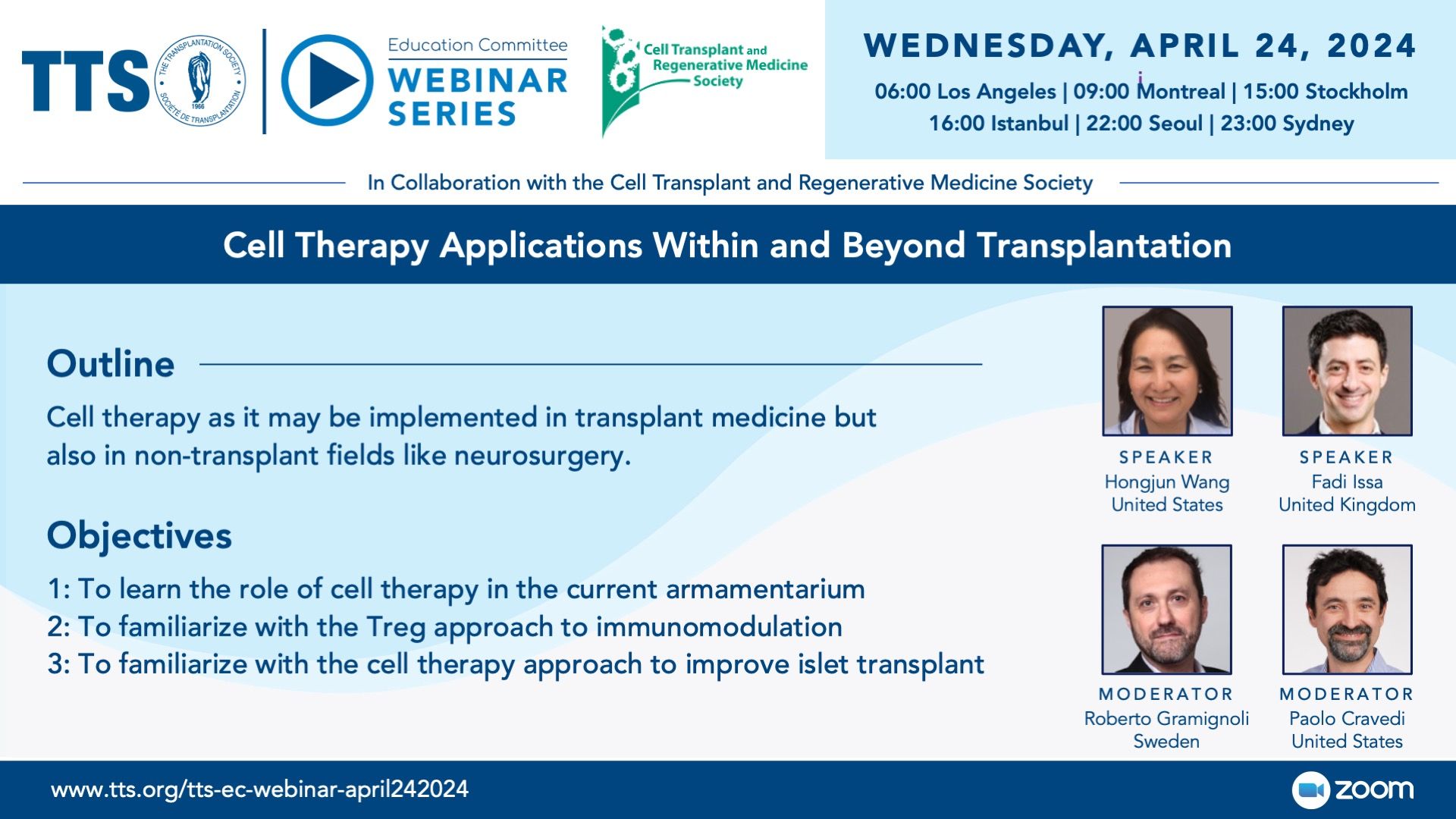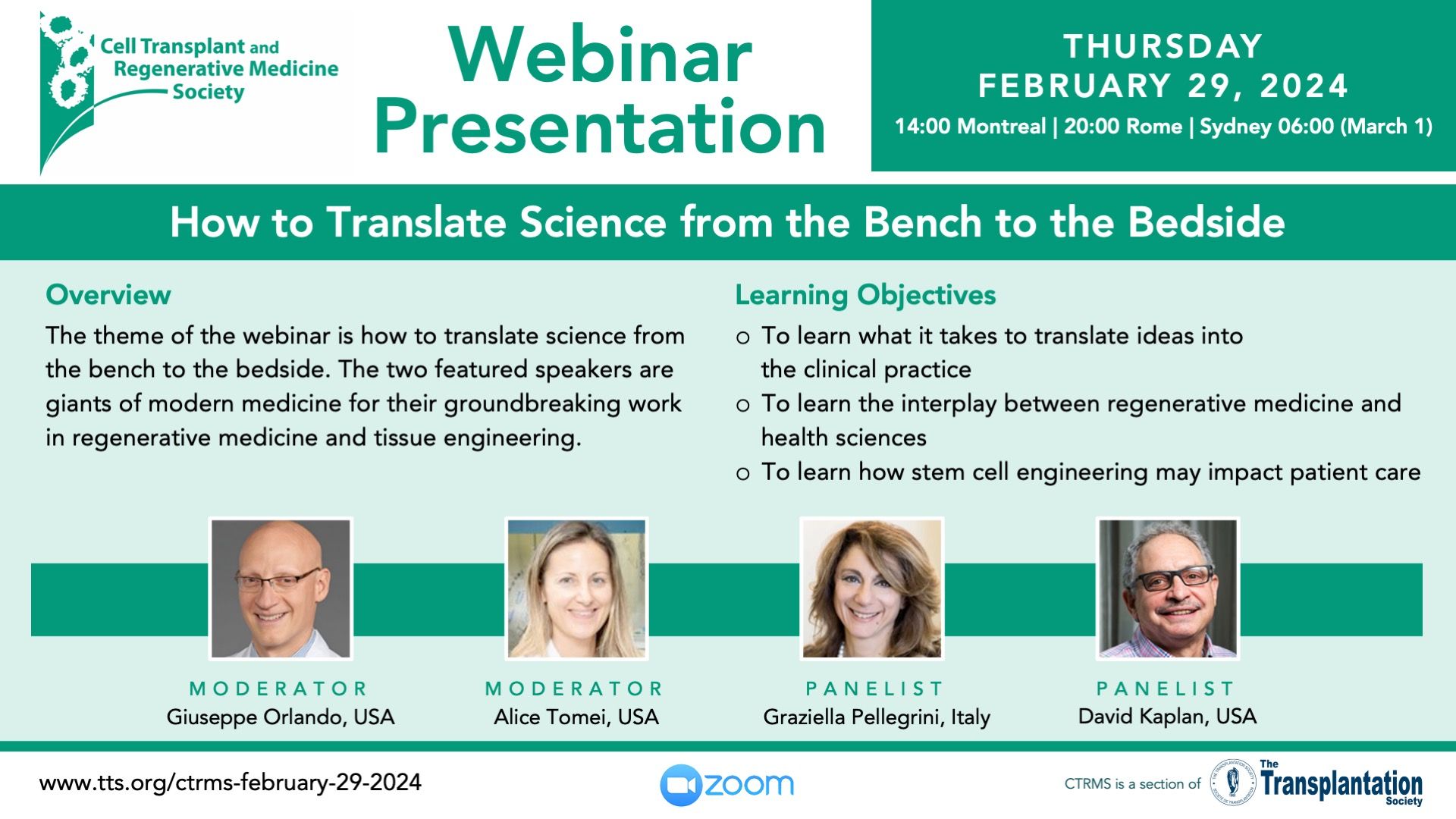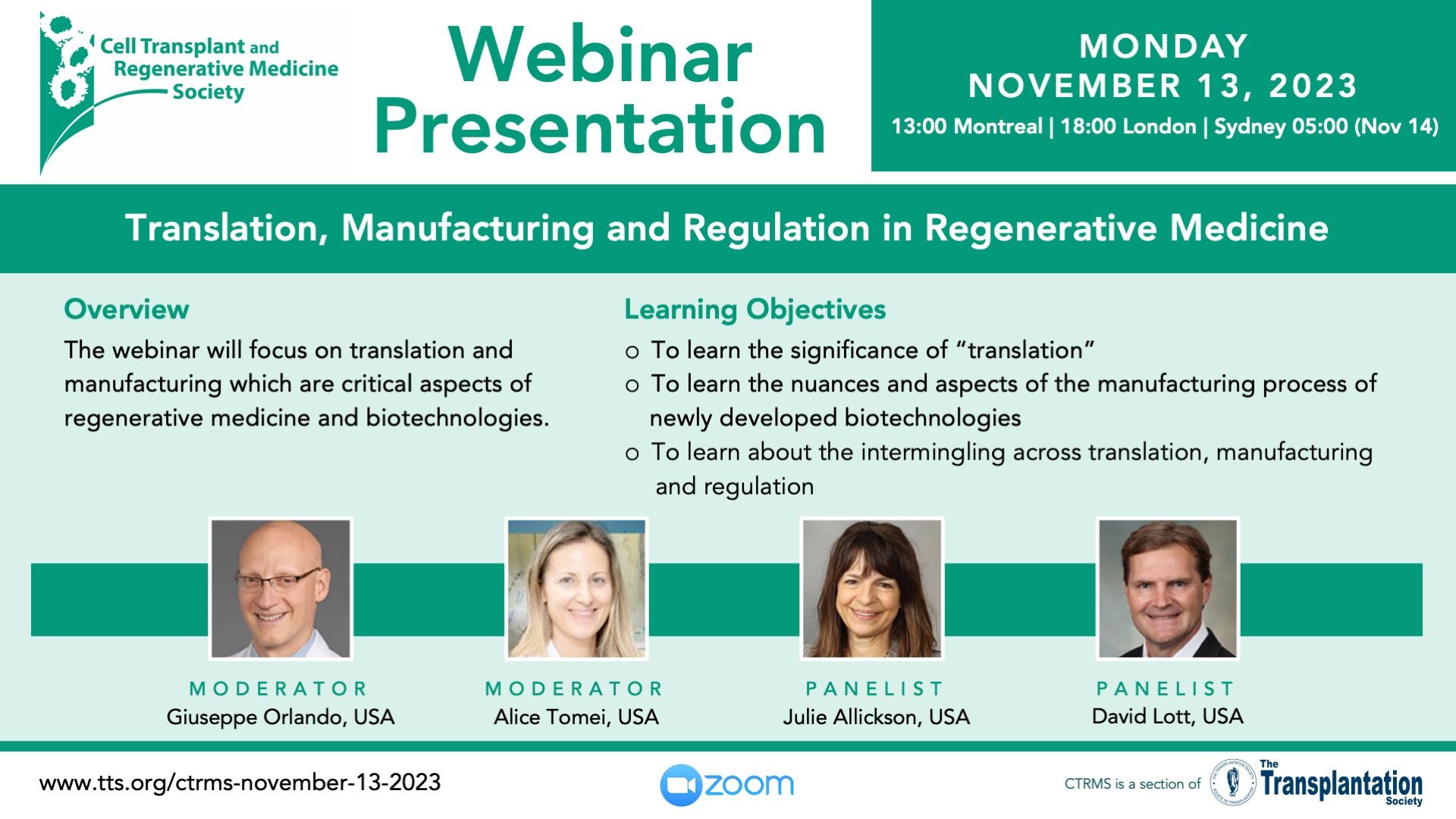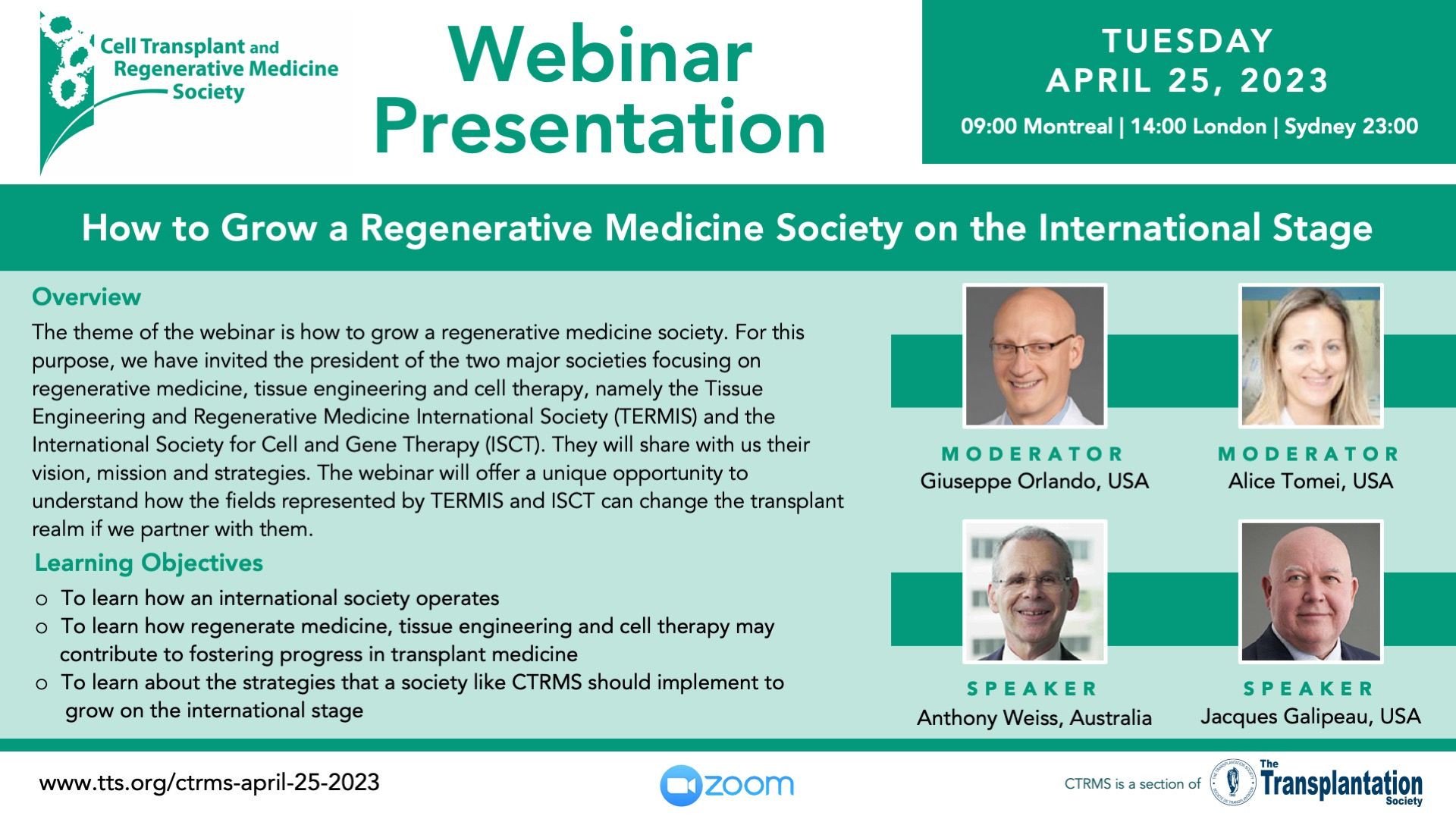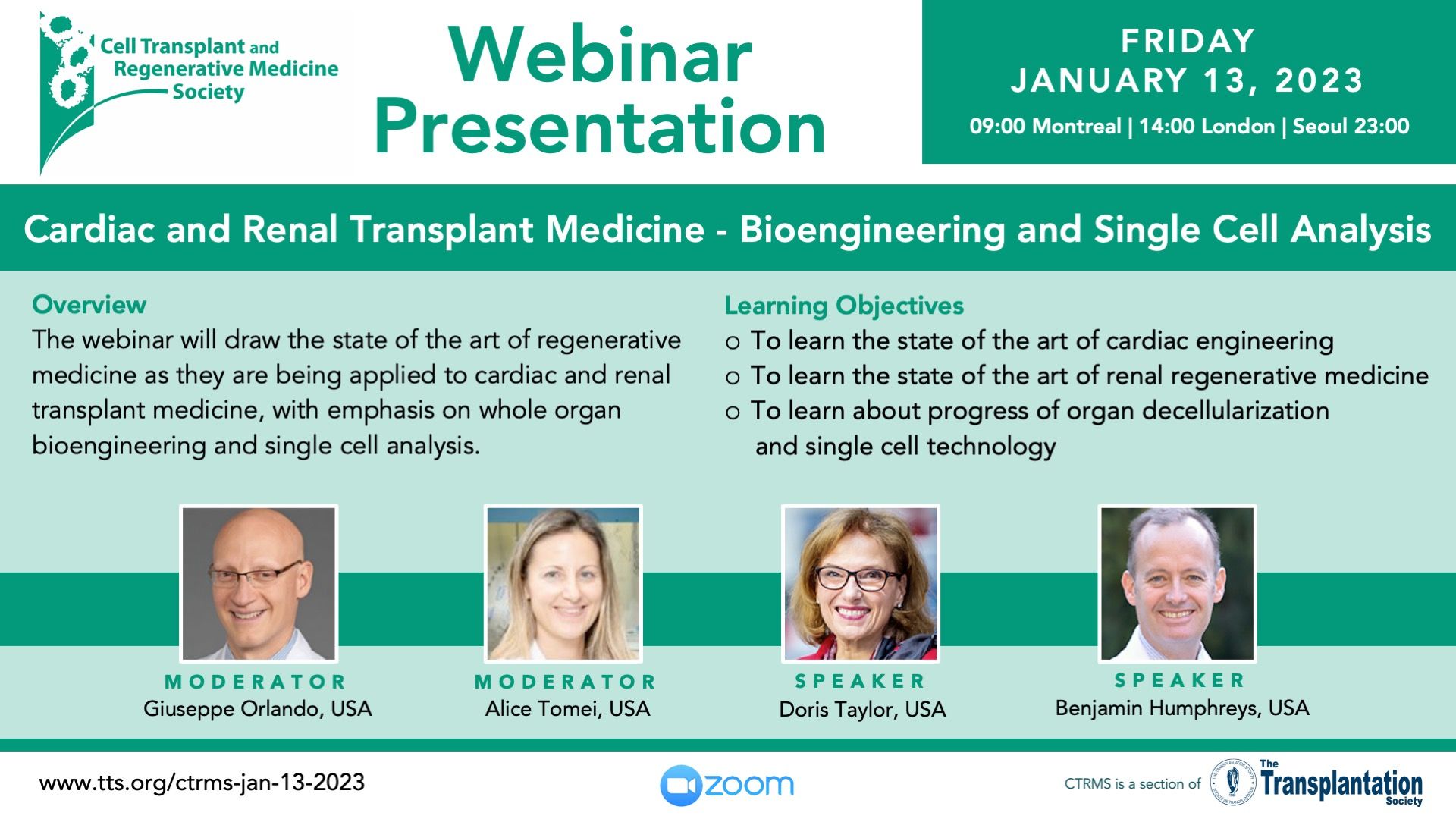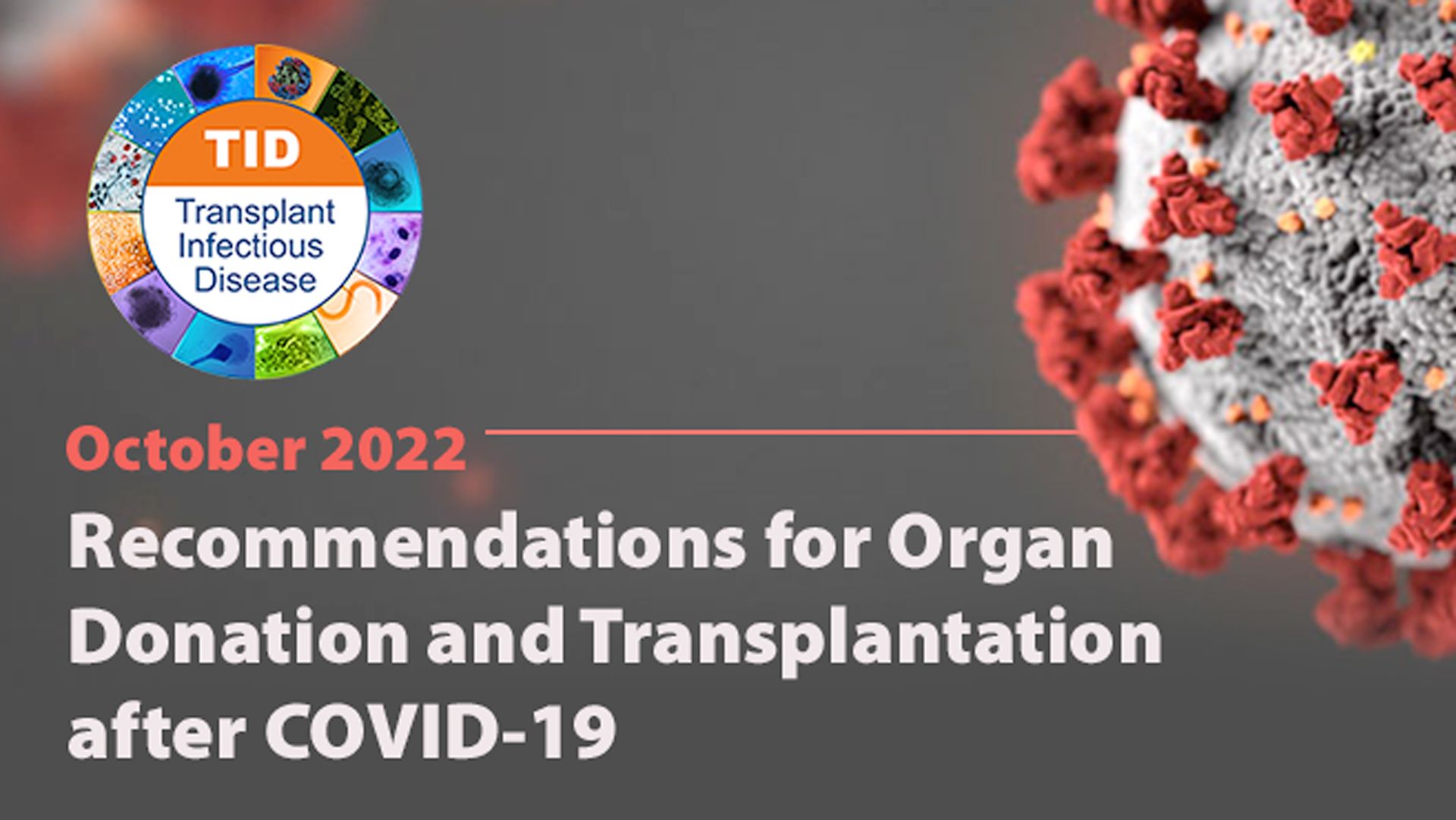Welcome to the
Cell Transplant and Regenerative Medicine Society
CTRMS 2025 - Call for Abstracts and Congress Scientific Awards

Submission Deadline: June 1, 2025

Application Deadline: June 30, 2025
Upcoming Webinar Presentations
Inaugural Edition of the Society Newsletter: CellTx NexT


Happy New Year! As we embark on this exciting journey into 2025, I am honored to greet you on behalf of the Cell Transplant and Regenerative Medicine Society (CTRMS). This year marks a fresh chapter for us as we strengthen our commitment to advancing cell transplantation and regenerative medicine through collaboration, innovation, and knowledge-sharing.
With the start of the new year, I am thrilled to introduce CellTx NexT, our quarterly newsletter dedicated to keeping you connected with the latest from CTRMS and our dynamic field. Each edition will feature updates on society initiatives, cutting-edge research highlights, details of upcoming events, and inspiring breakthroughs that shape the future of cell transplantation and regenerative medicine.
This initiative aligns seamlessly with CTRMS’s newly refined mission, goals, and vision. Our revised mission emphasizes the pursuit of transformative science and global collaboration to improve outcomes for patients worldwide. The goals of CTRMS have been sharpened to foster innovation, support education, and facilitate meaningful connections among researchers, clinicians, and industry leaders. Our vision remains steadfast: to lead the world in driving scientific advancements and creating real-world impacts for regenerative medicine.
We are also proud to share that our society has revitalized its social media presence, making it easier than ever to stay informed and engaged. I invite all members to connect with us on these channels to stay up-to-date and participate in ongoing conversations shaping our field.
As CTRMS continues to grow, your involvement is vital. Your contributions and insights shape the heart of this society, and I am confident that together, we will achieve remarkable milestones this year.
Thank you for your dedication to advancing our shared vision. I look forward to the discoveries, connections, and innovations that lie ahead.
With warm regards and best wishes for 2025,
Toshio Miki, MD, PhD
President, CTRMS
CTRMS 2027 Call for Hosting

Past Webinars and Recordings
Recent Award Winners
IPITA-IXA-CTRMS 2023 Congress Recordings
Contact
Address
Cell Transplant and Regenerative Medicine Society
c/o The Transplantation Society
740 Notre-Dame Ouest
Suite 1245
Montréal, QC, H3C 3X6
Canada












